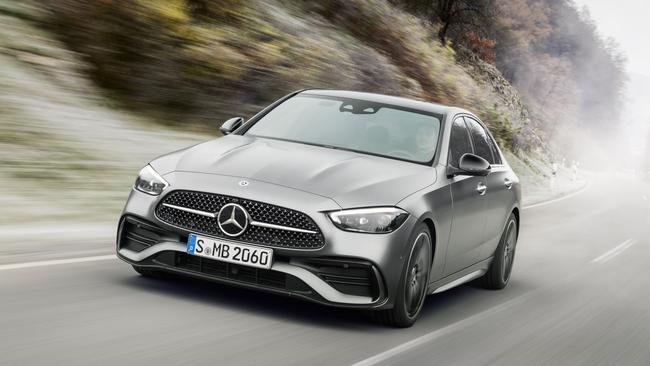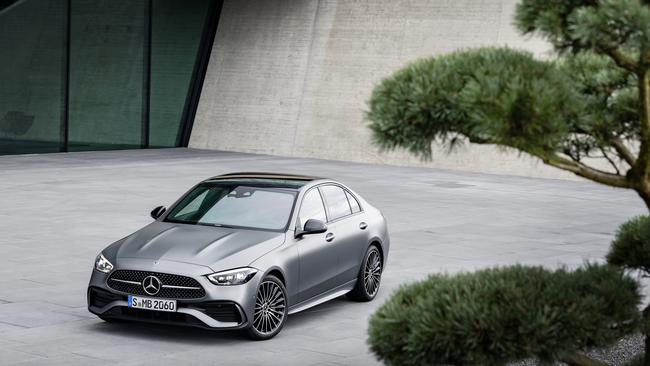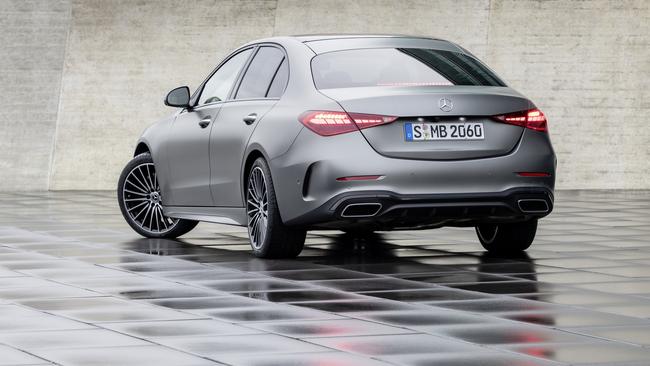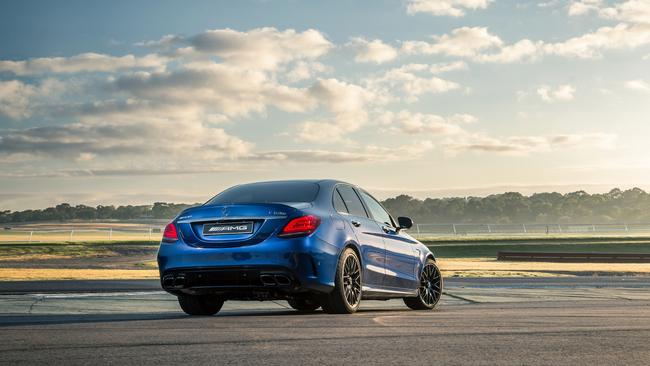Mercedes-Benz C300e plug-in hybrid revealed
The latest luxury offering from the world’s oldest carmaker will set a new benchmark for a rapidly emerging technology.

Motoring News
Don't miss out on the headlines from Motoring News. Followed categories will be added to My News.
The new Mercedes-Benz C-Class will feature the German brand’s best-ever PHEV (Plug-in Hybrid Electric Vehicle) tech.
As with the latest PHEV version of the very expensive Mercedes S-Class limo, equivalent models from the new C-Class compact family will be able to drive about 100 kilometres using purely electric power. That driving range puts Mercedes-Benz at the head of the PHEV pack.

The plug-in hybrid battery and electric motor in the C300e are virtually identical to those in the S580e. But there will be a very big difference in cost.
Even though prices for the C300e are likely to open at about $90,000, the larger and more luxurious S580e limo is sure to be almost three times as much.
Neither is yet available in Australia.

The first of the new-generation S-Class line-up went on sale recently, but the S580e won’t join the S450 here until later in the year.
Deliveries of the new-generation C-Class are only just getting under way in Europe and it will reach Australia about October at the earliest. The C300e, which is due to go on sale in Europe from September, is likely to reach Australia late this year or even in early 2022.
Also uncertain at this stage is which C300e variants will be imported. Mercedes-Benz will produce it in both sedan

and wagon body styles, and with all-wheel drive as well as rear-wheel drive.
Whenever it lands the new C300e will bring a big leap forward in electric driving compared to the C300e currently on sale. Both driving range and battery capacity are almost doubled.
The new PHEV’s 25kWh battery is larger than those used in some not-so-old pure EVs, such as early versions of the Nissan Leaf. Even so, the big battery pack in the C300e doesn’t reduce cargo space. Mercedes-Benz engineers designed a compact rear axle to make space for the battery pack to fit above.

DC fast-charging capability will be an option for the C300e. It’ll cut the time for a full recharge to 30 minutes, compared to the hours needed when using an AC wallbox.
Juice from the battery powers the 95kW electric motor installed between the C300e’s internal-combustion engine and nine-speed automatic transmission. That power output is 15kW lower than the identical motor in the S580e. The reduction is due to the lower maximum electric output of the C300e’s slightly smaller battery pack; 96 cells instead of 108 cells.

Top speed of the C300e is electronically limited to 140km/h. The car’s accelerator pedal has a pressure point to let the driver know that maximum electric power is being used. Push through it and the car’s internal-combustion engine will burst into life.
Maximum combined power when the turbo 2.0-litre four-cylinder engine and electric motor are working together is 230kW, so this PHEV will be a snappy performer when the pedal is down.
Originally published as Mercedes-Benz C300e plug-in hybrid revealed


